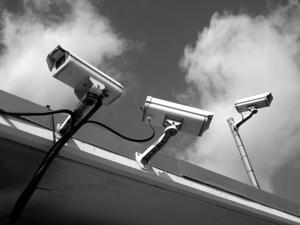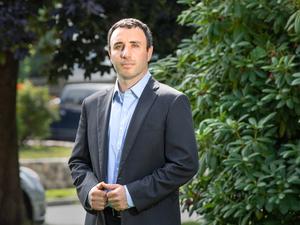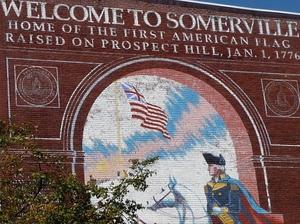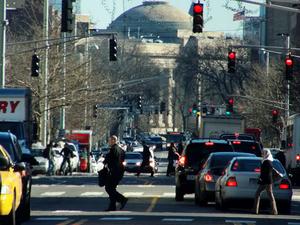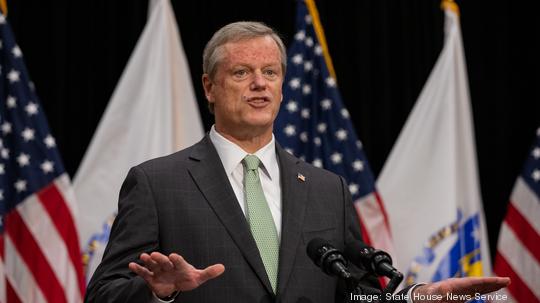
Gov. Charlie Baker is seeking to strike a proposal that would have banned police departments and most public agencies across Massachusetts from using facial recognition technology. Instead of signing into law a police reform bill, which included the proposal, he is sending the bill back to the Legislature, asking state lawmakers to make several key changes.
Baker pushed for enhancing a study of facial recognition while opposing a law that would limit its use by any public agency.
“The restrictions on the technology, with only significantly limited exceptions for law enforcement, ignores the important role it can play in solving crime,” Baker on Thursday wrote in a letter to lawmakers. “For example, in the last few years here in Massachusetts, a child rapist and an accomplice to a double murder are both now in prison thanks to facial recognition technology.”
A renewed focus on law enforcement reforms came after the deaths of George Floyd and other Black Americans at the hands of police. The police reform bill made its way to Baker's desk last week after passing 28-12 in the Senate and 92-67 in the House. In addition to the proposed ban on facial recognition, the bill would also ban or limit the police use of chokeholds, rubber bullets and chemical agents.
The bill would additionally put municipal police training under the oversight of a civilian commission, rather than in the state's Executive Office of Public Safety and Security — another provision Baker took issue with. "I do not accept the premise that civilians know best how to train police," Baker said.
If his proposed changes are not implemented by the Legislature, Baker wrote, he will veto the bill.
Baker's opposition drew criticism from elected officials and activists who have been working to implement bans on facial recognition technology, along with other types of surveillance tech, across Massachusetts.
Boston City Councilor and mayoral candidate Michelle Wu and Kade Crockford, director of the ACLU of Massachusetts' Technology for Liberty program, consistently point to facial recognition technology's ability to racially discriminate; Asian Americans, Black Americans and Native Americans are all more likely to be misidentified than their white counterparts.
"This is unacceptable, and we must fight to ensure the legislature stands firm behind its commitment to reining in this dangerous technology," Crockford said via Twitter on Thursday.
Rep. Liz Miranda, who represents parts of Dorchester and Roxbury, agreed.
"I will do everything in my power to push my (H)ouse colleagues not to support these amendments because the risk of failing is too high & black lives are on the line," Miranda said via Twitter. "We’ve compromised enough."
Standalone proposals for a statewide moratorium have made little headway in both the House and the Senate, while municipal officials have worked to enact local bans. Boston became the sixth city in Massachusetts to enact such a ban in June.
